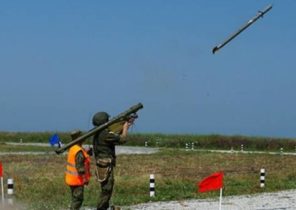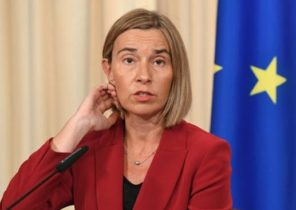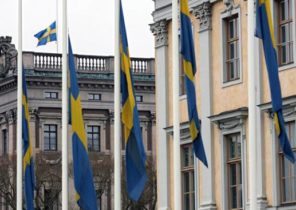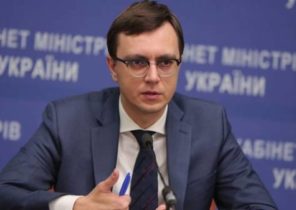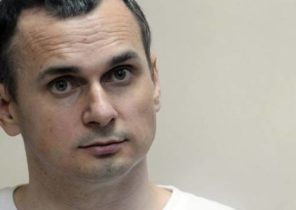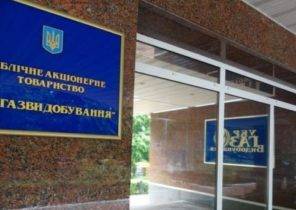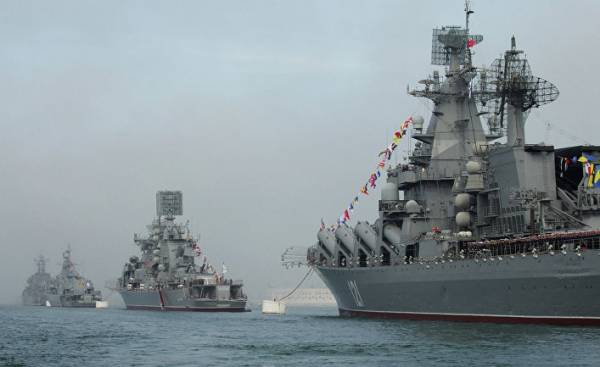
Here come the may 28, 2017 — the day when in accordance with the Agreement on stay of the black sea fleet of the Russian Federation it is twenty-five year old stay — should have been completed. As you know, April 27, 2010 the Verkhovna Rada of Ukraine with violations of the Constitution and rules ratified signed at the beginning of the reign of Viktor Yanukovych, the so-called Kharkiv agreement on the extension (in exchange for cheaper gas) the period of stay of the black sea fleet in Ukraine for another 25 years. Subsequently, on 31 March 2014, almost immediately after the annexation of Crimea, the Russian state Duma unilaterally denounced the agreement, rejoicing in the thought of eternal possession of the Crimea, and really emphasizing the true status of the black sea fleet of the Russian Federation as the occupying forces of the aggressor.
Announcing on may 17 a press conference in the UNIAN Agency on the issue of the Kharkiv agreements, the organizers rightly describe them as a giant step towards the loss of sovereignty of Ukraine and subsequent annexation of Crimea by Russia. But did Russia ever leave Crimea? To answer this question, it is necessary to remember one page of the post-Soviet Russian-Georgian relations. Twelve years ago, on 30 may 2005, the representative of the President of Georgia Gela Charkviani said: “Today successfully completed the process of negotiations on the withdrawal of the bases, which lasted nearly ten years.” It was about the withdrawal from the sovereign territory of Georgia of two Russian military bases. The final date of withdrawal according to the joint statement of foreign Ministers of the two countries, was supposed to be 2008. What instead got Georgia from Russia in 2008? Armed aggression and the annexation of part of its territory.
They believed the state leadership of Georgia that Russia will honor its international obligations? Perhaps, believed, contrary to the old warning to Otto von Bismarck that concluded the agreement with Russia is not worth the paper on which it is written. The top management of Ukraine for many years, until the annexation of the Crimea, too, apparently believed and even amused himself and the people thesis about the alleged “strategic partnership” with Russia, whom I once dedicated an epigram:
“Who glorifies — stronger in the world! — A strategic partnership of ox and yoke.”
Really, if you think well, what kind of strategic partnership can be discussed when the goals of two countries are not only different, but opposite, antagonistic, inconsistent: the goal of Russia is to revive the Empire and its dominant role in the post-Soviet space, and the goal of Ukraine — to build an independent state.
So lesson one, the most important: Russia can not be trusted never, under any circumstances. In this context, the alarming statement by the Deputy head of the presidential Administration Konstantin Yeliseyev may 13 that “for the sake of the Ukrainian President is ready to even go on a direct dialogue with Putin”, as for Ukrainians — do not do this for two reasons. First, talk with the thief only have to maintain with witnesses (another thing, in what format), and second, a direct dialogue is a significant part of Ukrainians perceive (another thing, fairly or not) as the desire to agree on something behind them.
Now let’s consider what actually began the annexation of the Crimea. With the Kharkov agreements? No. As you know, 12 February 1991 (at the end of the so-called “all-Crimean referendum” on 20 January of the same year), that is, when the Soviet Union was breathing its last, Crimean oblast in the Ukrainian SSR was transformed into the Crimean ASSR. That legal the price of this “referendum” is the same as the occupiers held a “popular referendum” on March 16, 2014 — as issues of the administrative-territorial structure of the country are not solved by local referendums — it is one side of the coin. Another is that at that time (January-February 1991) consisted of the USSR Constitution, as revised on December 26, 1990, Chapter 10-I which contained the list of the Autonomous Soviet socialist Republic (a total of 20, 16 of them — in Russia), and they are all from Bashkir to the Yakut Autonomous Soviet socialist Republic — was a national formations. The Crimean autonomy — the case is unique because it is the autonomy….
That had to do adequate Ukrainian government after the Declaration of Independence? She had, essentially, two options: either to recognize “the Crimean referendum” on 20 January 1991, is illegitimate and to return to the Peninsula the previous status of the area, or decided on the transformation of the Crimean autonomy, Crimean Tatar, and not only in name but also in content. Instead, he was elected third — as we have seen, the perilous path is the consolidation of the geographical nature of the autonomy-based not so much on Kiev, how much for Moscow.
The appearance on the Peninsula the so-called “little green men” was not the first, and the last phase of a multi-year special operation of the Kremlin. And the first massive attack on the Ukrainian statehood was the opening of the Peninsula in the nineties of the last century — with permission, and therefore the connivance of the Ukrainian authorities — branches of educational institutions of Russia. At the same time, the former mayor of Moscow Yuri Luzhkov was allowed to Finance in the Crimea and, as you know, he who pays the Piper calls the tune. So were laid a time bomb under Ukraine’s sovereignty over Crimea.
Did ever Russia (referring to the state leadership and the population) Ukraine as a sovereign country? I think not. To cite one example almost twenty years ago from my own experience. I’m only a few months since he came back from the Republic of Cuba and was working not even a counselor, and first Secretary of the administration for cultural relations of the MFA of Ukraine. And me — for the first time in my career — was included in the delegation that left for Moscow for consultations of the foreign ministries of the two countries. I was responsible for humanitarian issues. My counterpart was a man who was significantly older than me and who was probably hoping to impress me already harvested the first phrase — I still remember it verbatim: “Your policy of Ukrainization reminds me of the policy of arabization in Algeria when I was there the Ambassador of the Soviet Union.” (Which was then under the presidency of Leonid Kuchma, the “Ukrainization” of Ukraine can only be judged now, not in vain to attack Moscow chose the most Russified regions — Crimea and the Donbass).
But back to our sheep. Russian/Soviet Ambassador some time spread on the topic of Ukrainization/arabization, and when my turn came, I said one sentence: “Algeria, the Ambassador, was a colony of France, so your comparison is true if you consider Ukraine to be a colony of Russia”. After that, Russian/Soviet Ambassador had convinced me that I not so understood.
Then, under Yeltsin, they were imperialists, but tried to hide it. Now do not hide. That makes all the difference. At the time I wrote about the humanitarian component of Russian expansion. I refer to an authoritative source. “The humanitarian sphere is the least expensive and at the same time perhaps the most cost-effective vector of strengthening of Russian influence in the former Soviet space”, — wrote in the 4th issue of the magazine “Asia and Africa today” in 2005 the head of the Center for strategic development, member of the scientific Council under the security Council of the Russian Federation major General Anatoly Gusher.
So let us ask ourselves the question: do we want “the strengthening of Russian influence” in Ukraine and whether such a “strengthening” threat to the national security of our country? Giving yourself an honest answer, and the power, and citizens need to act adequately.
I was surprised to read in different sites vigorous reports of officials at various levels on successful completion of de-communization on the territory entrusted to them. The only, as evidenced by such “reports” is a deeply ingrained Soviet mentality of the officials themselves. Since the renaming of streets and the demolition of monuments — only the external manifestations of this process. Actually we should talk about decolonization (let’s remember the Soviet Ambassador in Algeria) because of the Soviet domination in Ukraine was preceded by a Royal, for mental liberation from colonial rule takes time. Ukraine’s task: to raise a generation of young people, is completely free from the influence of aggressive neighbor. Don’t know if they are our officials, but in the Kremlin understand: the loss of Ukraine, with its release from the influence of Moscow Empire — and this is good! — will cease to be an Empire. And otherwise it will prevent.
Made may 14, the statement of the President of Ukraine on the occasion of Europe Day that our country is “permanently departed from the Soviet and Russian empires”, unfortunately, is not quite true. We have euphoric visa-free regime with the EU and we delight post near the agencies along with the state flag of the European Union, and in fact there should be hanging the flag of the CIS, because we still are unable to get out of this controlled by Russia quasiabelian.
We must act according to the formula Mykola Khvylovy, who put forward the slogans — “down with you from Moscow! Dayosh UEL!” — in that order. We must proceed from the understanding of the fundamental aspects. In the multinational Soviet Union the language of interethnic communication was a state, Russian. In a multinational independent Ukraine the language of interethnic communication should also state, Ukrainian. Those who oppose this, consciously or unconsciously trying to preserve the colonial status of Ukraine.
I refer again to your own experience. In 1991, when I was in Toronto, I was invited to live Klufas Yuri, the founder and owner of the local Ukrainian television station. The program is broadcast on Saturday and lasted half an hour. After the transmission pan Klufas explained that these half — hour weekly limit all Ukrainian broadcast on canadian TV. The same — in the Polish broadcasting. I hope no one will accuse democratic Canada in violation of the rights of national minorities? And here we are goofing around, coming up with the quotas… the Ukrainian language in Ukraine. Yes, and consider this a great feat.
The language issue in Ukraine is not linguistic, it is a matter of national security. The point here is not so much in words as in substance. Ukraine-a colony of decades and centuries lived someone else’s life. Through the book, movie, song we impose other people’s realities, so we were kept on a leash. We read novels and watch TV shows on their scouts, the soldiers, the cops, until they invaded our territory. But little of the Crimea and Donbass, they want to occupy our minds and do it every day. In this sense, the ban of social networks of the aggressor, though belated, but a step in the right direction. Welcome also promulgated by the head MH of Ukraine’s intention to abandon the purchase of Russian medicines, stating that without Ukraine, Russian factories forced to stop production of aircraft an-140. But at the same time we learn that Russia has become the largest exporter of Ukrainian wines. What is the reason? Let him drink his “hawthorn”. The policy towards Russia should not be departmental, and the only state. With clear, balanced and consistent. And in this context I would like to draw the attention of today’s powers that be to some of the points. We prohibit the entrance to Ukraine to the deputies of the state Duma of the Russian Federation, visited the annexed Crimea. Why not those who by their vote supported the annexation, that is, everyone except one person in the Russian Parliament, Ilya Ponomarev, who voted against?
The state border service of Ukraine reported recently that three years are not allowed on the territory of our country to four dozen Russian artists. Well, why not? Or our officials do not know what these artists pay taxes in Russia, buy taken money from Ukraine’s goods in Russia, and part of these funds goes to war against Ukraine. So how long do we sponsor terrorism against their country? Or maybe, on the contrary, our officials aware of the facts of the tour of the German theaters in the UK in 1942-1943, or sale in the newsstands of London Nazi and Pro-Nazi periodicals in the same period? A fundamental principle of diplomacy is reciprocity. In practice, this means that the publication of “KP” in Ukraine is possible only if the publication of “MIND” (“Ukraina Moloda”) in Russia. Now, the only one in the whole of Russia in Ukrainian magazine “Dalkomhan hvilya” has been published in Khabarovsk at the expense of the publisher. Ukrainian theaters in Russia at all. Ukrainian classes are in several localities and operate on the principle of Sunday schools, which contain parents. Against this background, a particularly cynical and criminal looks the decision of the Collegium of the Ministry of education and science of Ukraine, which on April 28 approved a list of textbooks for the 9th grade of secondary schools, which will be issued at the expense of state budget in 2017. Numbered 123 to 128 and 143 of the application specifies the textbooks of the Russian language. Total of 7 vs 5 textbooks in Ukrainian. Let me remind you, at the expense of the state budget, and that’s just for 9th grade. Who do we have in the end, the Minister of education and science, still Dmytro Tabachnyk? Co-author of the infamous “language law”, a former member of the Party of regions, 2014 — Russian party “Rodina”, now Advisor to the Governor/Gauleiter of the occupied Sevastopol Vadym Kolesnichenko stood to applaud this decision of the Ministry. I hope sooner or later it will be duly appreciated by the Ukrainian authorities.
And a few words about the books. In the Russian language in Ukraine should reach only the books of Russian writers of Ukraine. Only in a translation. And not all. It is well understood Maxim Rylsky, translating into Russified Soviet Ukraine “Eugene Onegin”. I hope that the Ministry of culture of Ukraine, which is now responsible for the book area, make a few urgent steps in the right direction. Mean, first of all, the re-registration of subjects of publishing activity with the exception of the list of branches of Russian publishers and publishing houses in the Russian capital, as well as the introduction of licensing of printed products. It is also a matter of national security.
… Opposite the metro station “Arsenalnaya” in Kiev there is an interesting intersection, which can serve as a metaphor of today’s Ukraine — the intersection of two streets: Ivan Mazepa and Moscow. At the twenty-sixth year of independence it is time to choose the right direction.
